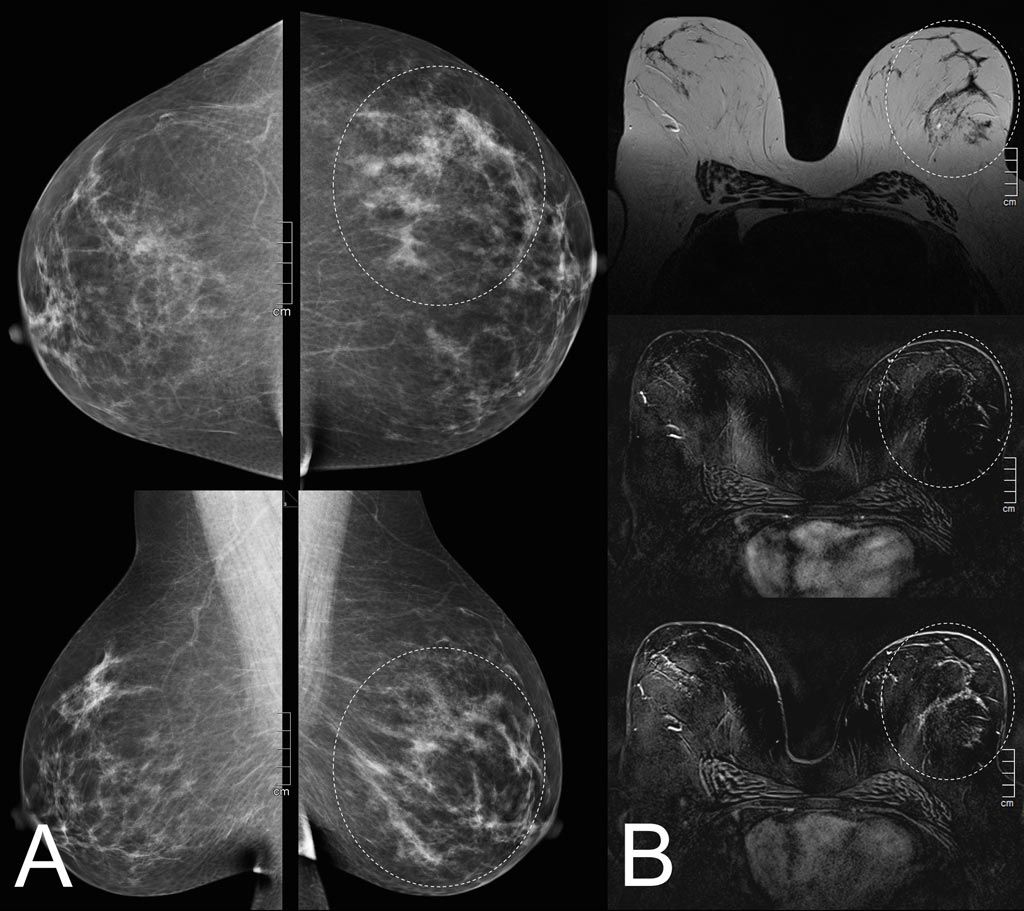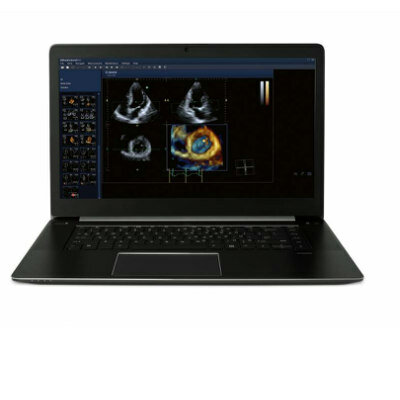Breast MRI after Cancer Can Lead to Superfluous Biopsies
By MedImaging International staff writers
Posted on 10 Jun 2019
A new study claims that for women with a personal history of breast cancer, surveillance breast MRI results in higher biopsy and cancer detection rates.Posted on 10 Jun 2019
Researchers at the Kaiser Permanente Washington Health Research Institute (KPWHRI; Seattle, USA), the University of California Davis (UCD; USA), the University of North Carolina (UNC; Chapel Hill, USA), and other institutions conducted a prospective observational study comparing performance of surveillance mammography and breast MRI. The study included 13,266 women (mean age 60 years) with stage 0–3 breast cancer who underwent 33,938 mammographic and 2,506 breast MRI examinations from 2005 to 2012 in the Breast Cancer Surveillance Consortium.

Image: A mammography scan (A) compared to breast MRI (B) (Photo courtesy of MedUni).
The women were categorized into two groups: mammography alone (11,745 women) or breast MRI (1,521 women). Performance measures were calculated by using end-of-day assessment and occurrence of second breast cancer events within one year of imaging. The researchers compared performance for breast MRI versus mammography alone, adjusting for women, examination, and primary breast cancer characteristics. Analysis was conducted on a per-examination basis.
The results revealed that breast MRI was associated with younger age at diagnosis, chemotherapy, and higher education and income. For women with a personal history of breast cancer, surveillance breast MRI in resulted in almost double the biopsy rates, and 1.7 times detection rates of second breast cancer events, compared with mammography alone. Breast MRI and mammography also showed the same sensitivity for breast cancer detection and interval cancer rates, indicating that mammography did not miss more cancers that would become clinically detectable during a one-year screening interval. The study was published on June 4, 2019, in Radiology.
“After women complete treatment for breast cancer, guidelines recommend annual mammography to screen for second breast cancers. In practice, breast MRI is also being used to screen a growing number of women who have had breast cancer; but more testing isn't always better,” said lead author Karen Wernli, PhD, of KPWHRI. “Women who had more education and income were also more likely to receive breast MRI; not specifically because they had higher risk of second cancers, but because they likely had more access to resources.”
“Some women may feel reassured when they have a biopsy that shows no cancer, while others want to avoid unnecessary biopsies,” said study co-author Dianne Johnson, who is a breast cancer survivor. “As someone who has had breast cancer and has listened to many other women across the country as part of this study, having to get another biopsy after already being treated for cancer raises women's anxiety and distress until they have the result. But most will endure the stress to be sure about whether the finding is cancer.”
While breast MRI provides a very high sensitivity and negative predictive value, particularly in non-calcified breast lesions, problem-solving definitions are not well defined, and the empirical evidence about specific indications, such as architectural distortions, is sparse.
Related Links:
Kaiser Permanente Washington Health Research Institute
University of California Davis
University of North Carolina














